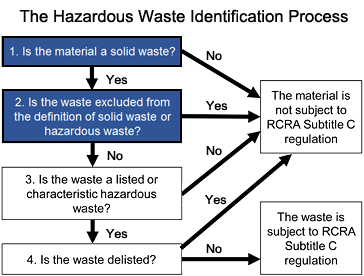The Ultimate Guide To Reclaim Waste
The Ultimate Guide To Reclaim Waste
Blog Article
Reclaim Waste Can Be Fun For Everyone
Table of ContentsThe Facts About Reclaim Waste UncoveredThe Best Strategy To Use For Reclaim WasteThe Ultimate Guide To Reclaim WasteHow Reclaim Waste can Save You Time, Stress, and Money.A Biased View of Reclaim Waste
Domestic sewer waste refers to the waste and items from a household septic tank. The appropriate administration and disposal of residential sewage waste call for fluid waste to be moved to a sewer therapy plant where the correct methods and equipment are applied to cleanse and dispose of waste.
Industrial waste often consists of possible hazards, such as combustible materials or a blend of fluid and solid waste products, and calls for an advanced and comprehensive disposal process. The disposal of business waste generally includes the purification of waste prior to transportation to make certain risk-free and correct disposal. Industrial waste is created from results and overflow of industrial procedures and production.
This kind of waste can not make use of the very same sewer management transportation or processes as septic or commercial liquids. The hazardous waste administration process calls for the inspection and testing of fluid waste before it undergoes the disposal procedure (liquid waste removal melbourne). Drainage waste is the liquid waste that comes from runoff and excess stormwater in highly inhabited locations or cities
Runoff waste can trigger contamination and flooding otherwise managed effectively. Discover more about sewer cleansing and waste management. Making certain proper waste management can prevent disasters and reduce environmental damage. Both people in property settings and experts in commercial or production industries can benefit from comprehending the procedures and regulations of fluid waste administration.
The Main Principles Of Reclaim Waste
Get in touch with PROS Providers today to discover our waste management and disposal solutions and the proper methods to look after the liquid waste you produce.
(https://blogfreely.net/reclaimwaste1/yc311a58b1)This so-called 'wastewater' is not only an important resource yet, after treatment, will certainly be launched to our land, waterways or the sea. Used water from toilets, showers, baths, cooking area sinks, laundries and commercial processes is recognized as wastewater.

water used to cool down machinery or tidy plant and equipment). Stormwater, a form of wastewater, is drainage that streams from agricultural and metropolitan areas such as roofings, parks, yards, roadways, courses and rain gutters into stormwater drains, after rain. Stormwater flows untreated straight to local creeks or rivers, eventually reaching the ocean.
A Biased View of Reclaim Waste
In Queensland, many wastewater is dealt with at sewer treatment plants. Wastewater is delivered from residential or industrial sites through a system of sewage systems and pump stations, known as sewage reticulation, to a sewer treatment plant.
The Division of Natural Resources encourages city governments concerning handling, operating and preserving sewerage systems and treatment plants. In unsewered areas, regional governments might call for owners to mount specific or household sewage therapy systems to treat residential wastewater from bathrooms, kitchen areas, washrooms and laundries. The Department of Natural Resources authorises making use of house systems when they are proven to be reliable.
The majority of stormwater receives no treatment. In some new communities, treatment of some stormwater to get rid of clutter, sand and crushed rock has actually begun utilizing gross contaminant catches. Wastewater treatment happens in four stages: Gets rid of solid issue. Bigger solids, such as plastics and other objects mistakenly released to sewage systems, are gotten rid of when wastewater is travelled through displays.
Wastewater then flows into big containers where solids resolve and are eliminated as sludge. Grease and residue are skimmed from the surface area. Utilizes tiny living microorganisms called micro-organisms to break down and remove continuing to be liquified wastes and fine particles. Micro-organisms and wastes are incorporated in the sludge. Removes nitrogen and phosphorus nutrients that might cause algal blossoms in our rivers and intimidate water life.
Reclaim Waste Can Be Fun For Everyone
Nutrient elimination is not readily available whatsoever sewage treatment plants since it calls for pricey specialist equipment. It is becoming much more common in Queensland. Clear liquid effluent produced after therapy may still contain disease-causing micro-organisms. If this effluent is released right into waterways such as rivers or the sea, the micro-organisms will ultimately die out.

Most wastewater flows right into the sewage system. Under the Act, local governments carry out authorizations and licences for ecologically appropriate activities (Periods) entailing wastewater releases that may have a regional effect.
Not known Incorrect Statements About Reclaim Waste
Tracking provides factual info regarding water high quality and can verify that licence conditions are being satisfied. The information gotten through tracking provides the basis for making water high quality decisions.
Report this page